academic strategy



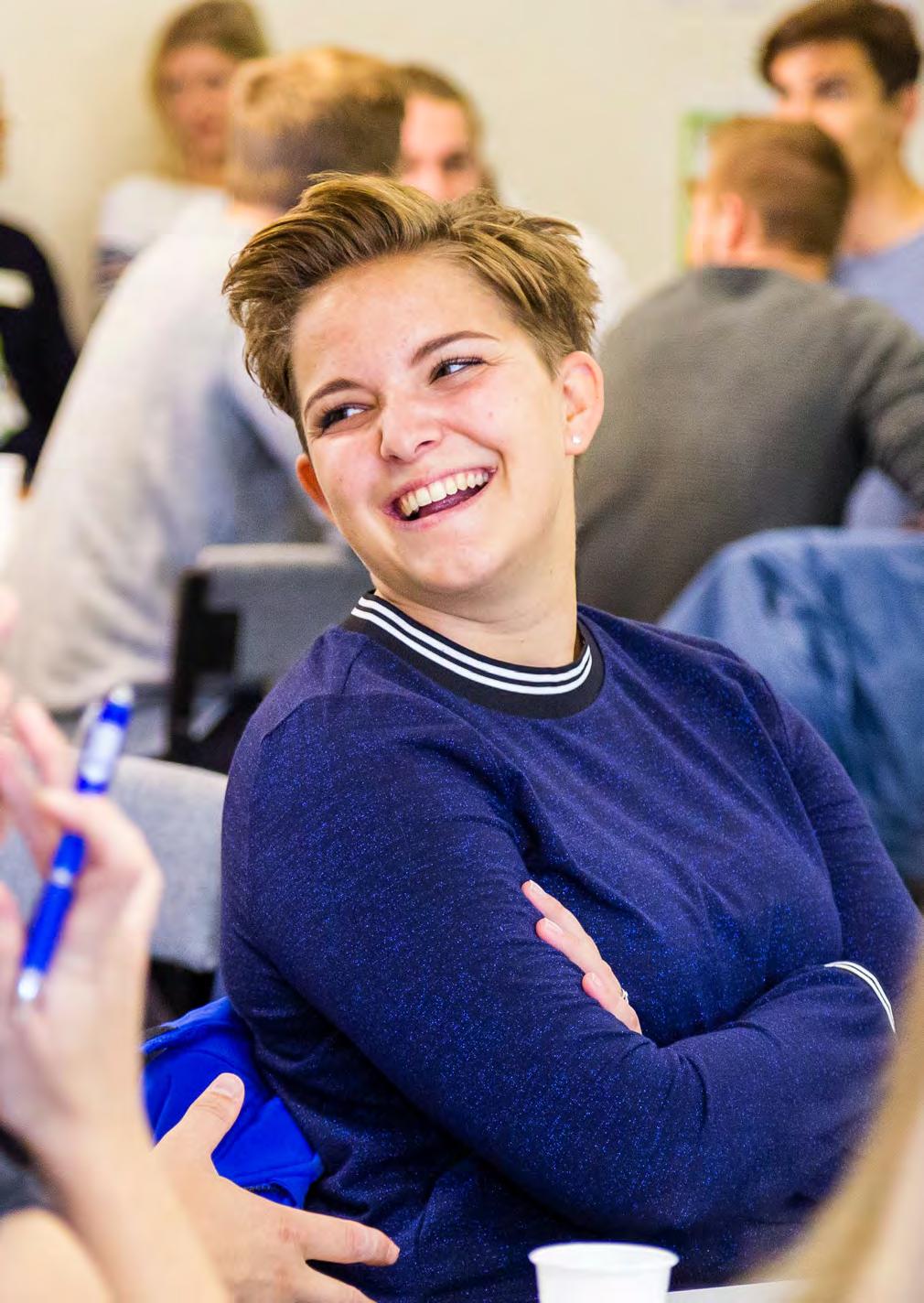
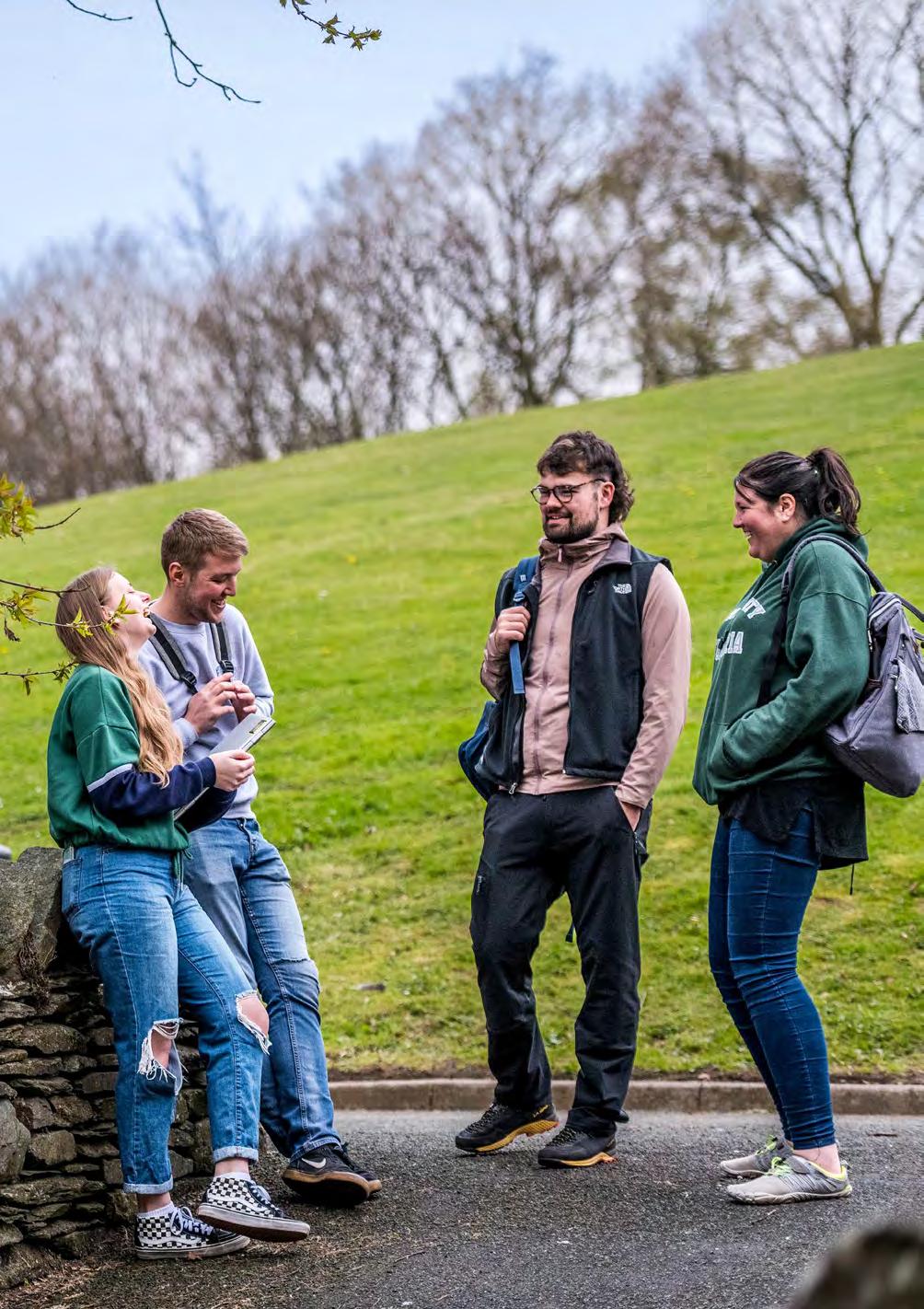


We are the University of Cumbria, for and from Cumbria and our localities, rooted in and serving our communities, with people, place and partnership at our heart.
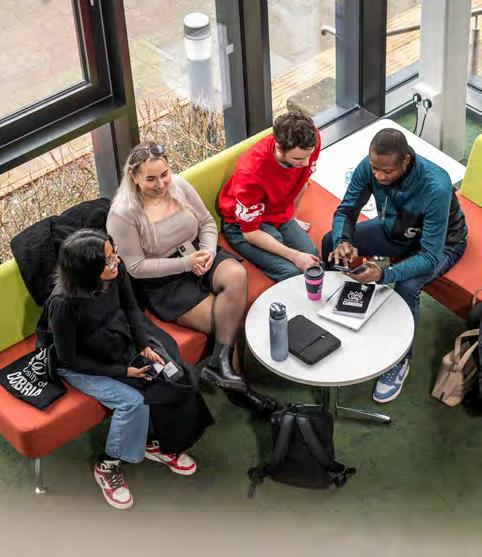
Towards 2030 articulates a clear vision for the future where the university will focus on “Transforming lives and livelihoods through learning, applied research and practice – for now and for our future generations” and through our mission we will ensure we are “Inspiring and equipping our graduates, communities, economy and environment to thrive”. This strategy encompasses the intent and direction for our future academic activity to achieve this vision and mission.
The university was established to play a significant role in increasing higher education participation and addressing the higher-level education and skills needs of Cumbria, and in doing so to co-create and apply new knowledge. This continues to drive us, as does a new and clear objective to be recognised as sector leading for our apprenticeship provision. As we look to the future, we know our county’s employers and sectors will provide even more local, demand-led opportunities for us to pursue, enabling us to accelerate the development of expertise we can utilise nationally and internationally. These include areas such as: digital transformation, advanced manufacturing, supply chain and logistics, the low carbon economy, medicine and health and wellbeing, which in turn will generate opportunities for new skills, knowledge exchange and applied research. Through our Academic Strategy we will take a long-term view to developing the academic capability to realise these opportunities, investing in the short to medium term for longer term benefits.
The following assumptions underpin and inform our approach:
- Our student body will
- continue to grow and diversify, reflecting our role, the needs of learners, employers and the economy,
- study on our campuses, in their workplace, flexibly, remotely, online and through our educational par tnerships.
- Our approach to meet their varied needs and expectations will need to reflect this, as will the ways we measure their satisfaction and outcomes.
- We must equip our graduates with the skills, confidence and attributes to realise their potential, to succeed in their workplace and careers and to be active global citizens. We will achieve this through our taught programmes, learning and teaching approach, curricula, research and practice focus, student support and wider student value proposition.
- Our strategies, policies and approaches will be integrated to ensure we are able to meet the requirements of the external higher education regulatory environment - in particular (i) the Office for Students threshold standards for student outcomes, (ii) the Office for Standards in Education inspections covering our initial teacher education and apprenticeship provision and (iii) the range of Professional, Statutory and Regulatory Bodies which accredit aspects of our academic portfolio.
- Shifting education and skills priorities and policy areas will present both risks and opportunities and we will need to be alert to ensure we can address changing requirements and expectations.
- We need to embrace the transformational potential of digital applications and technologies and recognise, and seek to mitigate, the inequalities that this may present.
- We do not, and we should not work alone - we have a rich and worldclass asset base of people, place, and practice to draw on.
- We work in and through student, educational, employer, sector and place-based partnerships and collaborations, co-creating approaches, content and solutions which meet our student and key stakeholder needs.
This strategy is required to, and does, encompass all relevant academic activity: learning, teaching and assessment, student experience and achievement, research and knowledge exchange, the continued development of the academic portfolio and academic staff development. The strategy through its key themes outlines the intent and approach to ensure we meet the following aims:
Learning, Teaching and Assessment
- Our curricula and learning, teaching and assessment plan will engage our students (irrespective of learner and mode and programme type) and ensure our graduates are equipped with the skills, knowledge, confidence and attributes to realise their potential and succeed on their university programme, their future careers and as digitally-enabled
and global citizens
- Our curricula and approach to learning and teaching will be informed and enhanced through our research and professional practice, drawing on innovative and sector-leading approaches and the contributions of employers.
Student Experience and Achievement
- The support and advice we provide to our students will be, where practical, aligned to their individual learning needs and environments, leading to improved student experiences, academic outcomes and opportunities for graduate work and further study after graduation.

Research and Knowledge Exchange
- Our research and knowledge exchange focus and priorities will reflect and reinforce our key academic strengths in our strategic areas of education and business
engagement such as education, medicine and allied health, environment and sustainability, arts and participation, project management, supply chain and logistics, advanced manufacturing, computing, and engineering.
- We will capitalise on our subject strengths to grow and ensure we deliver a research-informed curriculum.
- We will be Towards 2030 strategy led and partner informed, in co-creating and applying new knowledge and practice, seeking to address regional, sector and practice requirements, and to accelerate and increase the expertise we export nationally and internationally.
- We will focus on the impact of our research to our region, economy, practice and our students.
We will strengthen and develop further the academic core of our university by broadening and diversifying our disciplinary offer to meet regional, national and international needs and priorities. Our approach will ensure the portfolio continues to evolve to meet the needs of (i) our students - to enable entry to, and success in, their future careers and (ii) key sectors and employers - in particular addressing the workforce and sector needs of Cumbria, and from this beyond.
We will ensure our academic staff have the relevant skills, expertise, practice, pedagogies and career pathways to deliver our short to medium term ambition and to position the University of Cumbria as a positive and progressive university to begin and develop an academic career. The skills and expectations of the “Cumbria Academic” will be a pivotal part of our academic development activities.
The Academic Strategy outlines the university’s key strategic direction, focus and actions to achieve the Towards 2030 academic related ambitions and goals. The following three -year rolling action plans will articulate this further and generate the associated implementation plans and any required changes to regulations, policies and guidance:

- Learning, Teaching & Assessment
- Applied Research & Knowledge Exchange
- Student Support & Wellbeing
- Por tfolio and Pipeline
- Apprenticeships
In addition, the Academic Staff Development theme actions will be implemented and monitored through the Academic Strategy and Planning Committee and the Research and Knowledge Exchange Committee.

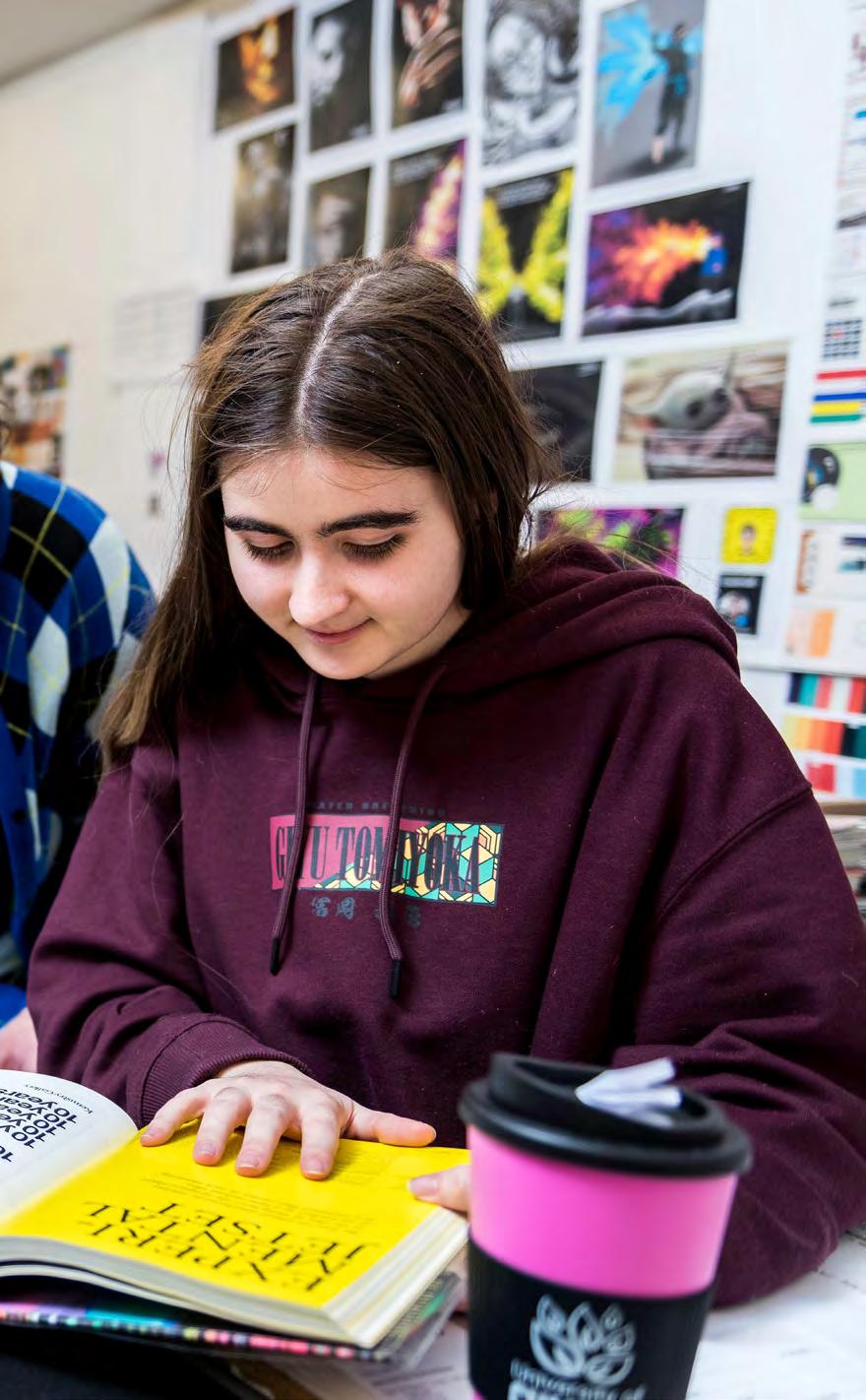
We will offer all students a transformational experience that supports them as they develop their thinking, knowledge, skills and practice to be successful in employment and lifelong learning. Across all levels and subjects of study, curricula and learning and teaching approaches we seek to develop learners’ confidence and independence, realising their potential both personally and professionally.
Our key aim is to ensure our curricula and learning, teaching and assessment strategy, informed by best practice, will engage our students (irrespective of learner and mode and programme type) and ensure our graduates are equipped with the skills, knowledge, confidence and attributes to realise their potential and succeed on their university programme, their future careers and as digitallyenabled and global citizens.
We will achieve our aim through:
- Developing and embedding an overarching learning, teaching and assessment plan, foregrounding an active learning approach, which is inclusive and places students at the centre of their learning, provides challenge, develops students as independent learners and utilises a range of approaches aligned to subject and context.
- Pedagogy, curricula and programme design, which utilises digital resources and approaches to provide innovative, individual and programme specific student learning experiences and outcomes.
- Designing and utilising a range of authentic assessment practices, incorporating rich feedback, which allow students to demonstrate and continually improve their understanding by learning through assessment at the same time as they evidence their progress.
- Ensuring our curricula and our approach to learning and teaching is informed and enhanced through our research and professional practice, drawing on innovative and sector-leading approaches and contributions of employers and practice.
- The co-creation and delivery of curricula and assessment practices with students and employers.
- Providing curricula and additional development opportunities, which prepare students to be
future leaders through a focus on equality and diversity, sustainability, internationalisation, career management, health and wellbeing, and leadership.
- Providing opportunities for students, irrespective of their programme or mode of study, to prepare for future careers through placements, volunteering, mentoring by industry leaders and/ or masterclasses.
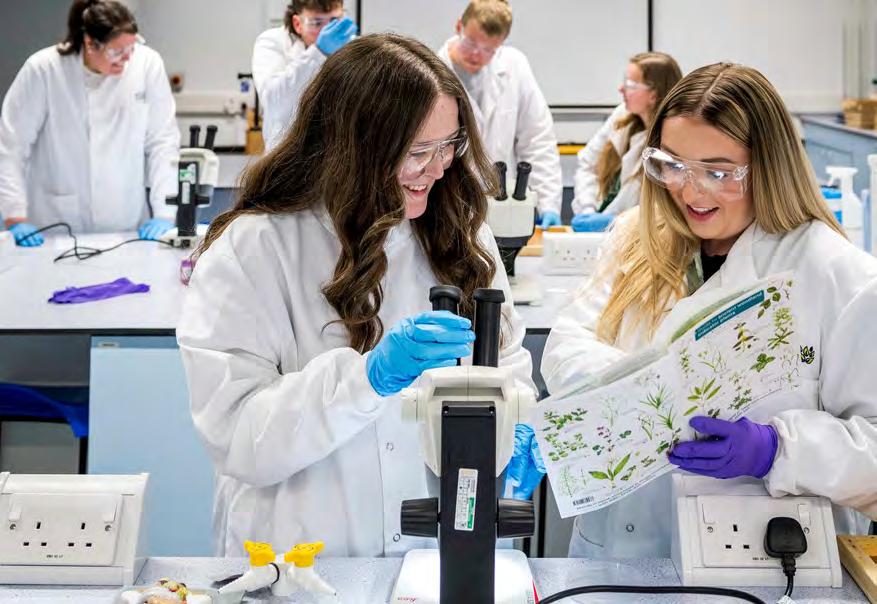
- Preparing students for living and working in a digital world by developing their high-level digital skills (subject specific and generic) to apply in employment and for the benefit of society.
- Designing, at the point of validation, high quality flexible ways of studying at the university for our varied student cohorts, which will include (i) a spectrum of delivery options, from fully online through different blended modes to faceto-face on campus education and (ii) access to academics, knowledge and practice wherever they are studying.
- Consistently and effectively utilising student feedback to develop and enhance our approach to learning, teaching and assessment.
- Producing graduates who are confident and possess the skills and knowledge that employers recognise and value, evidenced in our graduate employment outcomes which will remain in the upper quartile of the sector, and through feedback from our employer partners and, where relevant, professional and statutory related bodies.
- Our learning and teaching practice is recognised, internally and externally, for its distinctiveness, alignment with context and its impact and outcomes.
- Exceeding the university-level B3 thresholds for continuation, completion and progression.
- Achieving the university Key Performance Indicator targets related to student outcomes.
- Progressive improvement in our Teaching Excellence Framework rating leading to ‘Gold’ by 2030.
- The Office for Standards in Education inspection outcomes for our Apprenticeship and Initial Teacher Education provision.
- Our National Student Survey scores which will be consistent, improving and be in the upper quartile by 2030 – in particular the questions relating to teaching, assessment and feedback and academic support.

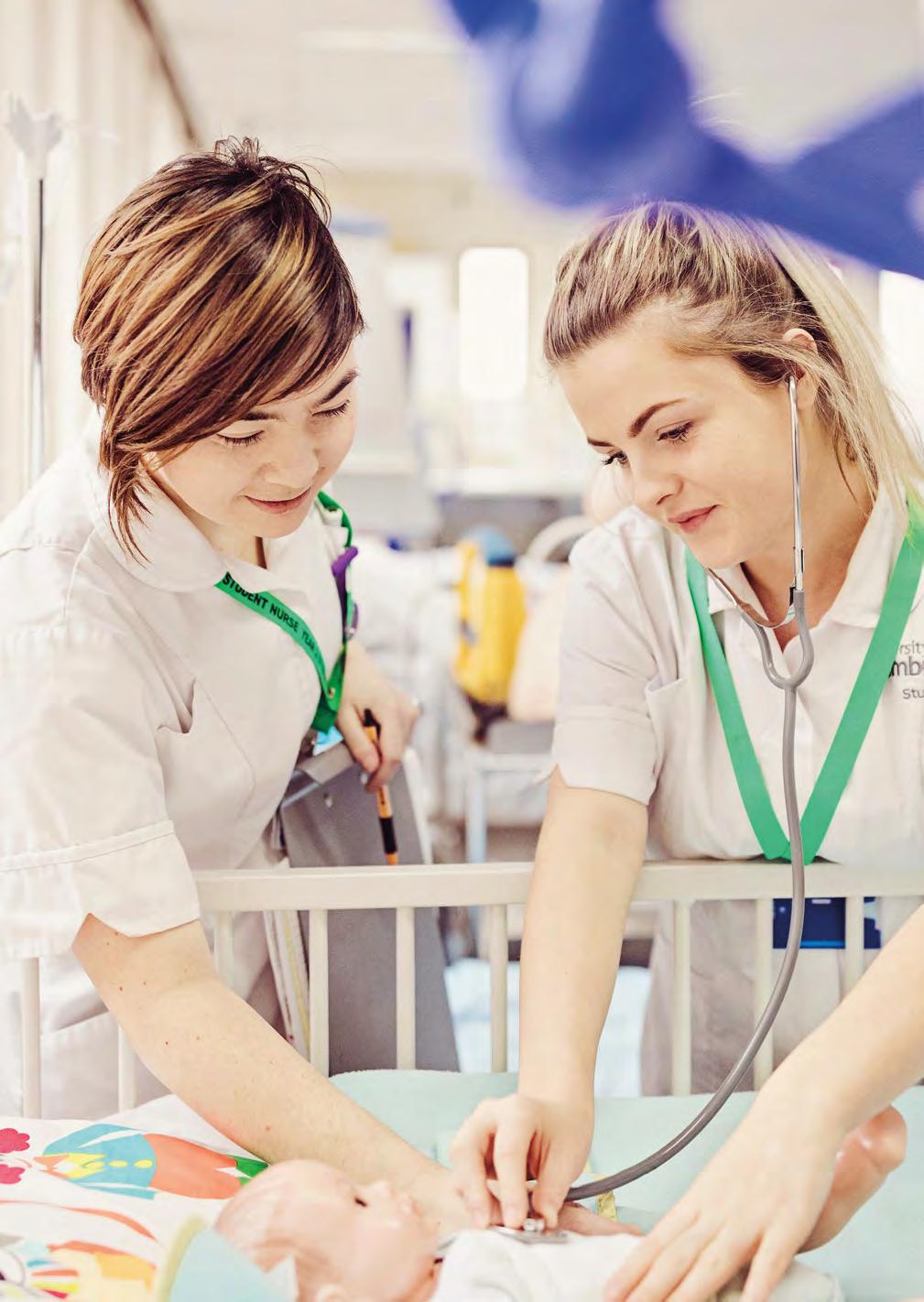
Our key aim is to ensure the support and advice we provide to our students is aligned, where practical, to their individual learning needs and environments, leading to improved student experiences, academic outcomes and opportunities for graduate work and further study after graduation.
This will be realised through (i) measurable continuous improvement in our existing provision, (ii) the implementation of new integrated actions and initiatives and (iii) ensuring equity of approach for all students irrespective of what campus they are studying at, their programme of study or mode of delivery.
The following are the key elements, which contribute to achieving our aim, through creating a university environment that is focused on improving student support and advice leading to enhancement in their overall experience and positive outcomes:
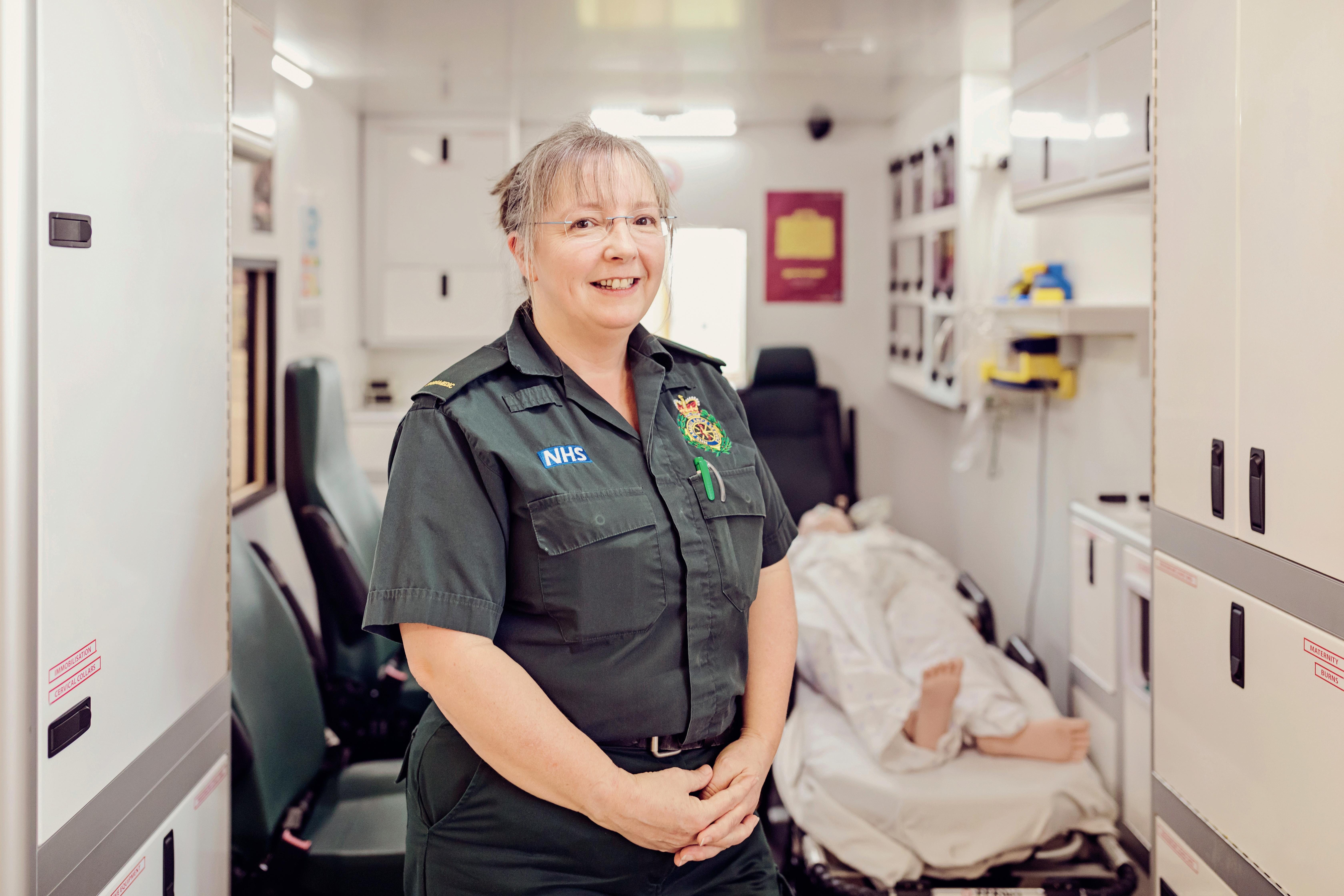
- The utilisation of digital resources and approaches by academic and support staff which connect campuses and provide innovative, individual and programme specific student experiences and outcomes.
- Student advice which will proactively suppor t our learners throughout their educational and personal journey with us, with an emphasis on positive mental health, wellbeing and the key transition and interaction points. Our Professional Service staff, who provide the support and advice to students, will have the required skills and expertise to meet our ambitions and access to development opportunities to continuously improve the service they provide.
A cohesive academic framework which aids the development of the environment required to give our students an excellent experience. An integrated approach which specifically supports students on our apprenticeship provision, which recognises the additional requirements resulting from their study location and programme structure and ensures an outstanding student experience.
- Integrated and consistent academic skills suppor t through both extra-curricular and embedded study skills development which, increases student confidence, enabling them to engage with their programme of study more effectively and progressively increases their ability to become independent learners.

- Through our Employability Strategy we will continue to increase the confidence of our students, raise their aspirations and ultimately prepare them for their future careers. This will be achieved through a coordinated, consistent approach to providing students with the careers preparation required to gain and sustain successful graduate level employment.
- Enhancing our approach to student engagement to ensure we are effective in how we collect, analyse and respond to student feedback, in its many forms, which is essential to continuously improving what we offer. We will promote an environment in which student voices and opinions are proactively sought, encouraged and valued, through providing opportunities for students to engage informally and formally and enabling students to see the impact of their feedback on our practice and policies.
- Exceeding the university-level B3 thresholds for continuation, completion and progression.
- Achieving the university Key Performance Indicator targets related to student outcomes.
- Our National Student Survey scores which will be consistent, improving and be in the upper quartile by 2030.
- Progressive improvement in our Teaching Excellence Framework rating leading to ‘Gold’ by 2030.
- The Office for Standards in Education inspection outcomes for our Apprenticeship and Initial Teacher Education provision.
- Reducing differentiation between student groups in line with the targets of the relevant Access and Participation Plan.
We have a clear focus on growing our academic reputation in both research and knowledge exchange. We recognise the key components of expanding our academic engagement with research and knowledge exchange activity that has a direct impact on our relevance of place and regional, national and international reputation. We will grow our research skills, expertise and outputs as well as provide creative solutions and utilise our academic skills to support innovation and growth across our region and beyond.
To do this we will:
- Encourage innovative, ambitious and internationally excellent research by our academic staff and to utilise the benefits of such research in all aspects of the university’s delivery.
- Strengthen our applied research focus and its impact by focusing on key research outputs that are relevant to the social, health, economic, businesses and innovative needs of our region and beyond.
- Develop transformative partnerships and collaborations with world class industry and key university partners in the UK and across the globe to develop new knowledge to share solutions that support progression.
- Increase our research student community through our range of doctoral opportunities and thus increase new knowledge which is informative, relevant and can make significant impact and change.

- Fur ther develop and enhance the research skills and capacity of our academic communities, creating a research active and research focused community that influences both practice and the curricula for our students.
- We will facilitate collaborative research and knowledge transfer that will strengthen and improve our reputation and capitalise on our relevance and impact across our region.
- A significant increase in doctoral student numbers and the completion of doctoral studies on time.
- An increase in the research capacity and capability of our academic staff thus increasing the number of academic staff with significant responsibility for research.
- Continued success in our Post Graduate Research Experience Survey results.
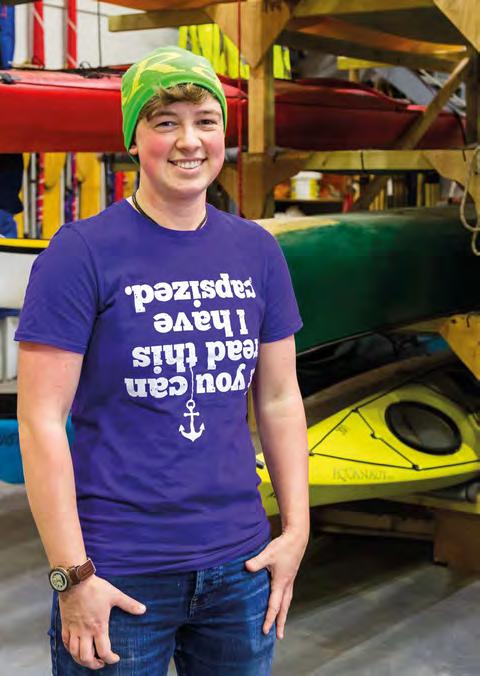
- Growth in our Research Excellence Framework (or its successor) outcomes.
- Increases in our Knowledge Exchange Framework outcomes that measure our relevance and engagement with partners, stakeholders and collaborators.
- Increased engagement and satisfaction from our regional and national strategic partnerships.
The success of our approach will be evidenced by:

Our aim is to strengthen and develop further the academic core of our university and our key academic disciplines, broadening and diversifying our disciplinary offer to meet regional, national and international needs and priorities, whilst also seeking to achieve a balanced portfolio offer to enhance financial performance. This distinct aim will inform the management and development of our academic portfolio to ensure it continues to evolve to meet the needs of (i) our students - to enable entry to, and success in, their future careers and (ii) key sectors and employers - in particular addressing the workforce needs of Cumbria. The portfolio will be informed and enriched by our research, practice, locations and key employer links and partnerships.
To meet this aim, over the initial period of the Towards 2030 strategy, our focus will be on:
- Managing our academic portfolio to strengthen the academic base of the university by (i) ensuring additions are in response to an evidenced and sustainable market demand and (ii) unviable programmes are removed.
- Developing and implementing the Barrow portfolio plans and in particular (i) our new portfolio in Engineering and Computing enabled through the establishment of the Institute of Engineering, Computing and Advanced Manufacturing at the Barrow campus, (ii) sustained growth in Business, Project Management and Supply Chain programmes and (iii) through further grow in our health provision in Barrow.
- Establishing the Cumbria School of Medicine with Imperial College London to attract and retain Cumbria-based medical staff and improve patient outcomes.
- Significant development of our digital programme portfolio, specifically through the introduction of new programme areas, aligned to graduate and employer needs, and generally through the development of a more digital focused curriculum across our existing provision. The Centre for Digital Transformation will be established to support the academic institutes in these developments.
- Further developing our sectorleading apprenticeship provision, and models of delivery, to ensure we provide a relevant portfolio offer and flexible and accessible delivery modes.
- Maintaining a partnership focus to workforce transformation to grow and enhance our public services’ portfolio covering education for nurses, paramedics, medics, allied health and social care practitioners, teachers, and police officers.
- Developing industry informed and career focused academic provision across the Arts and Creative sectors through digitally informed distinctive programmes of study which equip our graduates to thrive in their chosen field of practice/ careers.
- Increasing the offer, delivery options and locations for Project Management and Supply Chain and Logistics to increase student numbers and increase market reach.
- Establishing Ambleside, through focused portfolio development, as an internationally recognised place of scholarly excellence for sustainable practices and the natural environment.
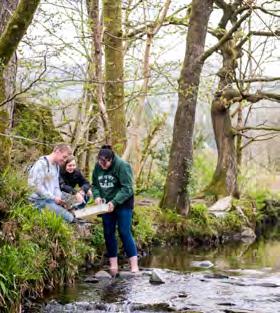
- Ensuring the por tfolio offer at the London campus continues to evolve to remain attractive, relevant and achieves the expected student number volumes.
- Developing our skills development portfolio in line with government expectations, regional skills plans and market demands, with an emphasis on Level 4 and 5 provision.
- Ensuring our por tfolio is relevant and attractive to international students and continuously seeking new development opportunities to grow our attractiveness and reputation.
- Our approach to education partnership working will include:
- Developing education partnerships where the opportunity for new business exists with careful consideration given to strategic partnerships to develop feeder programmes for our own courses.
- Working with regional bodies, employers, other universities, FE colleges and partners to shape and support the delivery of Cumbria’s economic and skills strategies.
- An increase in the higher education participation rate in our county.
- Meeting our overall, and subject specific, recruitment targets.
- Employer and Professional, Statutory and Regulatory Bodies feedback on our provision.
- Our graduate employment outcomes which will remain in the upper quartile of the sector.
- The quality and success of our par tnerships.
- The Office for Standards in Education outcomes for our Apprenticeship and Initial Teacher Education provision.
We consider the ‘Cumbria Academic’ as innovative, evidence based and digitally enabled practitioners who aim for student success in all that they do. Our aim is to ensure they have the opportunities, where required, to develop the relevant skills, expertise, practice, pedagogies and career pathways to deliver our short to medium term ambition and to position the University of Cumbria as a positive and progressive university to begin and develop an academic career.
We will therefore support the development of the ‘Cumbria Academic’ through:
- Our academic centres’ (Centre for Academic Practice Enhancement, Centre of Digital Transformation) academic staff will be able to (i) develop and enhance their pedagogical knowledge and skills to support our innovative learning, teaching and assessment and (ii) acquire the digital skills and capabilities required to deliver our digital goals, including the expertise to design and deliver education and learning using digital tools.
- Continuing to value and recognise the expertise of our staff and support them to succeed in their role and career development, whilst maintaining our emphasis on health & wellbeing and work-life balance.
- Continuing to provide academic development opportunities through a range of approaches including research skills development, research and scholarly activity leave, financial support for studying additional academic qualifications, a suite of regular development sessions and the sabbatical programme.
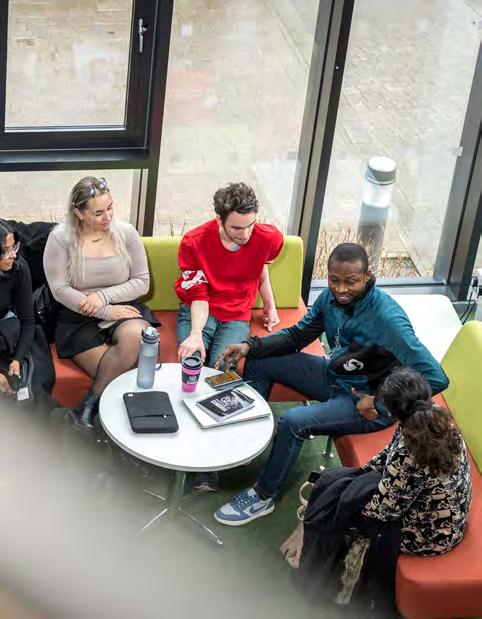
- Providing clear progression pathways for our academic staff to achieve Associate Professor and Professor status.
The success of our approach will be evidenced by:
- Achieving the associated outcomes as outlined under Themes 1-4.

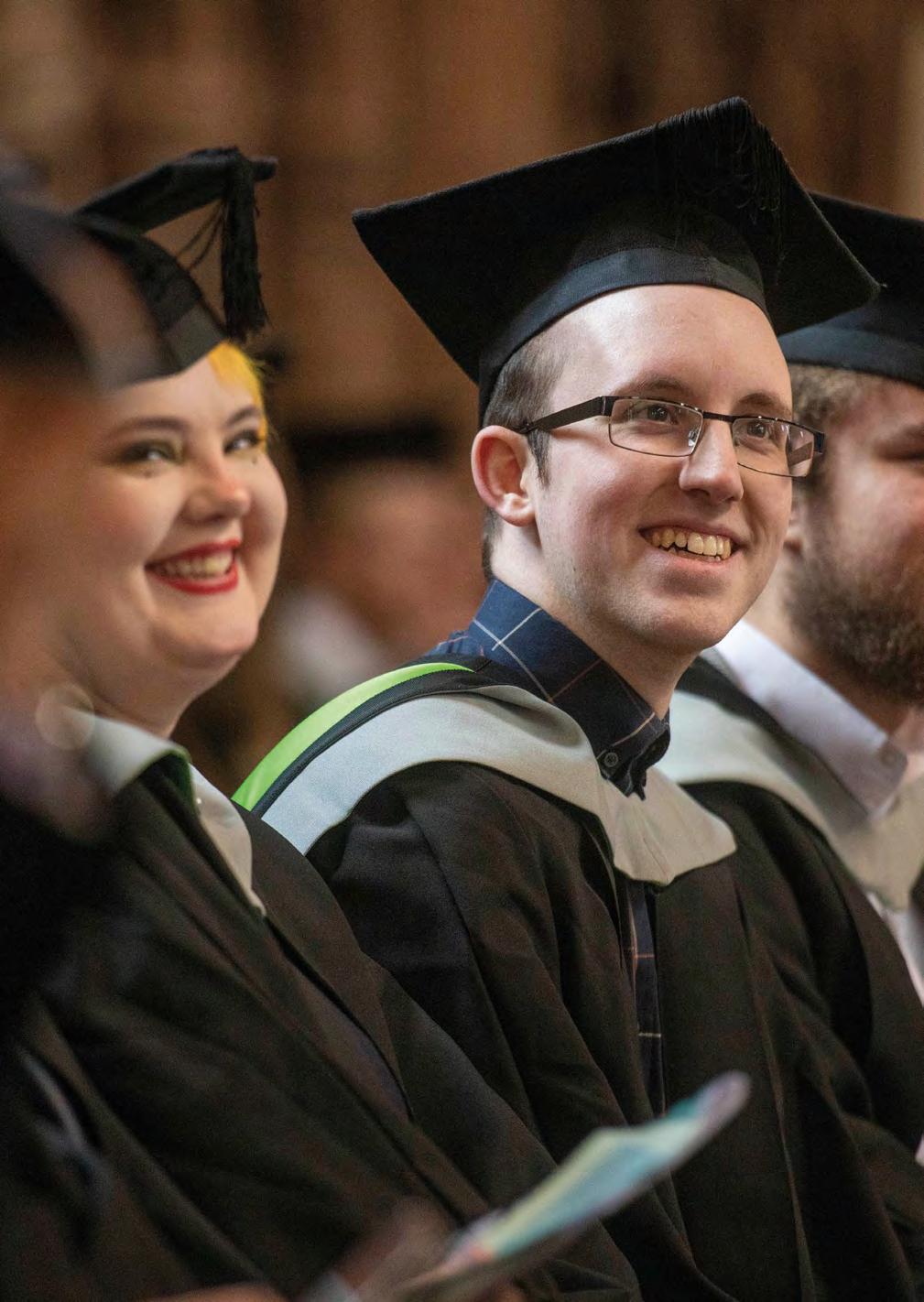
Knowledge Exchange Framework
Knowledge exchange (KE) is a process which brings together academic staff, users of research, and wider groups and communities to increase the impact of research. The process encourages the sharing of ideas, data, experience and expertise, which is mutually beneficial to all parties involved.
National Student Survey (NSS) Office for Standards in Education (Ofsted)
The National Student Survey is an annual survey of final year undergraduate degree students in higher education. The results are published and are used in university league tables and in the Teaching Excellence Framework.
The Office for Standards in Education inspects services providing education and skills and produce an outcome based upon their inspections.
Office for Students (OfS)
Postgraduate Research Experience Survey (PRES)
The Office for Students is the independent regulator of higher education in England.
The Post Graduate Research Experience Survey (PRES) is a sector wide survey offered by the Higher Education Academy to gather insights from postgraduate research students about their learning and supervision experience. It is currently offered every second year at the University of Cumbria
Professional, Statutory and Regulatory Bodies (PSRBs)
Research Excellence Framework (REF)
PSRBs are organisations that work with the higher education sector for the approval, recognition and accreditation of programmes
REF is an exercise undertaken by the four UK higher education funding bodies, through a process of expert review, to assess and sustain the quality, impact and environment of the UK’s research base.
Teaching Excellence Framework (TEF)
TEF is an exercise undertaken by the OfS to assess excellence in teaching at higher education providers and assess how outcomes for students are assured. The next assessment is in 2023.


How will the progress of objectives or activities be monitored? Who is responsible for reporting the progress and where will progress be reported? Consider if any existing governance groups can be utilised or if a new group is required.
Based on the indicators for each theme/pillar complete the table below with targets for each year.


For each theme detail the activities to place, owner and timeframe if known, or reference individual plans